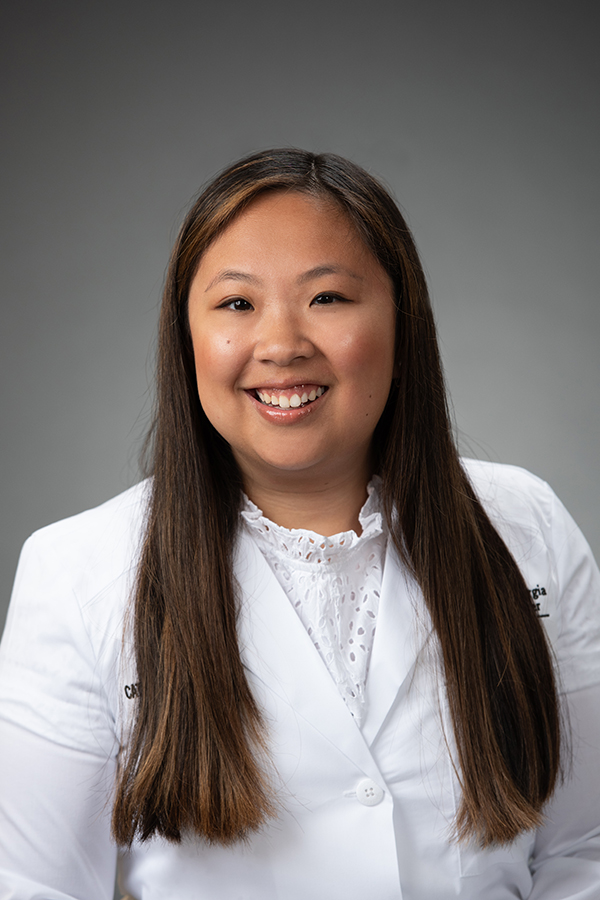Have you ever given caffeine a second thought?
“Doc, I’m a coffee connoisseur. I just can’t live without it! How much coffee is too much?”
“Doc, I’m a college student and it’s finals week. I drink three energy drinks every night to help me stay awake to study and I still feel like I’m not performing well on my exams.”
“Doc, I’m pregnant. Can I still drink a cup of coffee every morning?”
These are just some of the scenarios that I have encountered with patients. If you’ve ever found yourself second guessing caffeine, you aren’t alone. Even as a resident physician, I admit I’ve had one too many cups of coffee to get through my night shifts. Caffeine is all around us, but are we well-informed about the safety of caffeine consumption? What effect does this substance have on our bodies? Is there more harm than benefit? How much is too much?
What exactly is caffeine?
Caffeine is a chemical that stimulates the central nervous system. It blocks a neurotransmitter in the brain and increases the circulation of cortisol and adrenaline in the body. All these chemicals regulate your energy levels by increasing your heart rate and alertness. Caffeine is well-absorbed into your body and its effects can be felt within 30 minutes and may last up to 12 hours.
You’d be surprised by how many products contain caffeine: coffee, tea, soda, energy drinks and even cacao beans (chocolate). No wonder it is known as the world’s most popular drug!
Below are estimates of the caffeine content of some common products.
- Coffee (8 oz cup): 80-100mg
- Black tea (8 oz cup): 50mg
- Coca-Cola (12 oz can): 35mg
- Red Bull- Energy Drink (8.4 oz can): 80mg
- Monster- Energy Drink (16 oz can): 160mg
What are the perks?
A cup of coffee just hits the spot early in the morning, doesn’t it? Other than tasting good, there are many benefits to caffeine. Daily intake can result in improved reaction time, decreased fatigue and decreased appetite (only providing slight weight loss). Long-term effects of caffeine on chronic disease have also been a focus of research. Multiple studies have shown that higher coffee consumption is associated with lower risk for Type 2 Diabetes. It is believed that coffee (without sugar) helps preserve the insulin producing cells of your pancreas, which enables better regulation of blood sugar levels. Interestingly, caffeine is also used in the treatment of premature infants. When babies are born early, their lungs do not get the chance to develop fully. Caffeine is especially effective in these newborns because it stimulates their respiratory centers in the brain, allowing them to breathe better.
What are the drawbacks?
Negative health effects of caffeine include insomnia, anxiety, upset stomach, nausea, dehydration, palpitations, raised blood pressure and addictive properties that result in physical dependence. You must also be careful mixing caffeine with certain medications: nasal decongestants, theophylline (asthma/COPD therapy) and echinacea (herbal supplement). When used together, these medications can increase the concentration of caffeine in your system and ultimately result in higher risk of high blood pressure, palpitations and seizures.
So, how much is too much?
Everyone reacts to caffeine differently. In fact, some individuals metabolize caffeine differently due to their genetics. However, according to the Food and Drug Administration, up to 400mg of caffeine per day is safe for healthy adults (400mg of caffeine is roughly four cups of coffee or three energy drinks).
Toxic effects such as agitation, severe anxiety and seizures can be seen at 1,200mg of caffeine. It is incredibly important to read labels to determine the amount of caffeine present as it varies by product and serving size.
Is caffeine safe for pregnant women? For children?
Pregnant women, those trying to conceive and breast-feeding mothers should limit caffeine intake to 200 mg or less daily. High consumption throughout pregnancy is associated with lower infant birth weight due to caffeine causing constriction of blood vessels in the uterus and placenta.
Children and adolescents should also avoid caffeine. The American Academy of Pediatrics discourages the consumption of caffeine and other stimulants due to possible interference with development. Moreover, adolescents who do consume caffeine (especially energy drinks) should be counseled on its interactions with alcohol. Caffeine can mask the depressant effects of alcohol, resulting in further impairment, dependence and overdose.
How do I cut back?
If you decide to curb your caffeine habit, you must do so gradually. You can slowly lower levels of caffeine in your body by drinking smaller amounts each day or avoiding caffeinated drinks late at night. Cutting caffeine out of your life drastically can lead to withdrawal symptoms, which include headaches, irritability and fatigue.
If you’d like to read more about caffeine and its effects, the American Academy of Family Physicians has information about its safety and the Journal of the American Medical Association has even more information about how caffeine relates to health.
Learn More
As always, you can talk to your primary care provider about any concerns regarding safe consumption of caffeine. Whether you’re a coffee connoisseur buying a new home brew kit, a college student cramming for final exams or a healthcare worker on night shift, stay safe and informed amidst the caffeine buzz!
If you don’t have a doctor, NGPG has a number of providers who would be happy to see you! You can search for one and book an appointment online.



